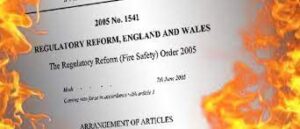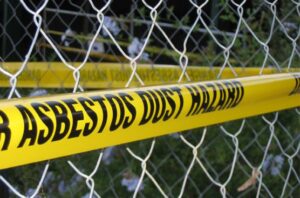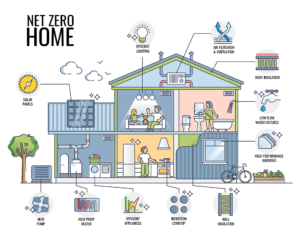




ijf‘s people have a wealth of experience and are competent in almost all fields of compliance. Holding multiple health and safety qualifications, including NEBOSH, our people are members of the Institute of Safety and Health (IOSH) and the Association of Project Safety (APS).
Can you and your business afford not to undertake the following assessments and management plans?
Fire Risk Assessments
The ‘Regulatory Reform (Fire Safety) Order 2005’ (RRFSO) came into force in 2006 and amended and consolidated a significant number of areas of fire safety law that previously were in place such as the Fire Precautions Act 1971 and the Fire Precautions (Workplace) Regulations 1997. The Order places a general duty of fire safety care on the “responsible person” (employers, occupiers, owners (and even managing agents or landlords in some cases) of almost all types of premises) and requires them to provide and maintain adequate fire precautions. Are you sufficiently protected?
Asbestos
Ian FIlkins (Director) maintained the ISO 17020 accreditation for asbestos surveys, as governed by UKAS, in his previous employment. He holds qualifications in Asbestos Management (P405) and asbestos surveying (P402). Whilst surveys are very useful in identifying the presence of asbestos, the key is in fact the management of asbestos so that employees, occupiers, members of the public are not put at risk. We provide a consultancy service for the preparation and subsequent maintenance of your Asbestos Management Plan. This directly helps you to satisfy your duties under the Control of Asbestos Regulations 2012 – can you afford not to?
Water Risk Assessments
Legionella and water risk assessments are required by law under the Health and Safety at Work etc Act 1974. ijf can assist you in planning and undertaking these assessments, which are a fundamental way for you to protect your employees, occupants and members of the public from exposure. Our assessments are carried out in accordance with BS 5850. They should be periodically reviewed, around every two years of following a water system change.
Inclusive Environments
Inclusive environments initially became the buzz word under the then Disability Discrimination Act. Under the Equality Act 2010, legislation, unlawful discrimination continues to be acknowledged and quite right. Does your premises prevent access or use by people with specific impairments? If you are not sure, or if you need the fact confirming, you should consider an Inclusive Environment Assessment. This will help you to consider if your facilities are lacking somewhat and more importantly, what you can do to either improve them, or manage the possible legal implications.
Recent Comments
Categories
Recent Posts
-
Damp and mould in social housing: Initial findings
April 13, 2023
